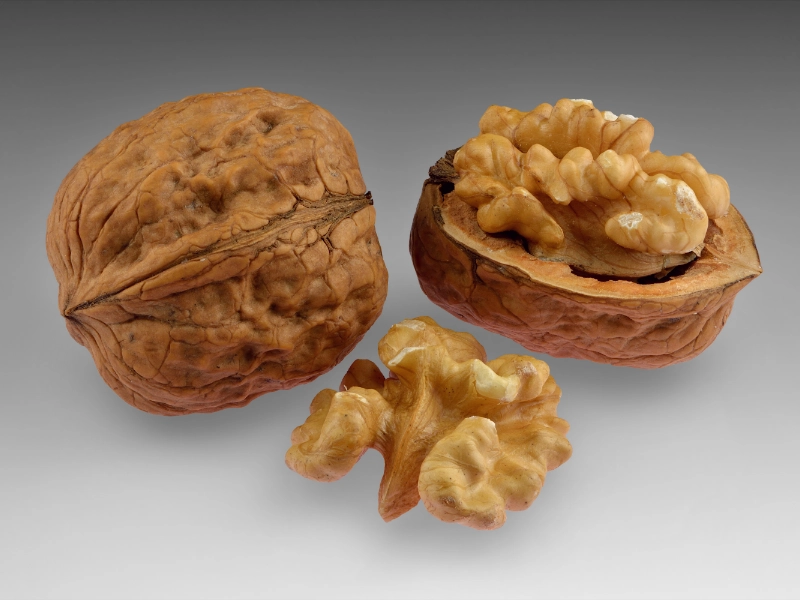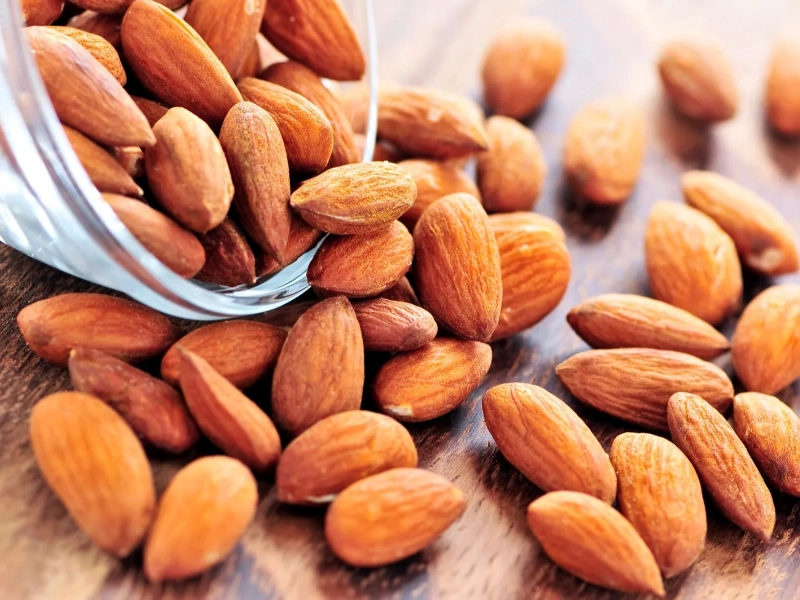Although their health advantages abound, nuts are especially important for promoting bone health. Rich in vital nutrients, nuts offer a spectrum of minerals and vitamins that support robust bones and general skeletal health. Examining their nutritional value, particular types good for bones, and useful advice for include them into your diet, this article explores the several ways nuts might improve bone health.

 Although all nuts have health advantages, several kinds especially help with bone health. Almonds, for instance, have especially high calcium and magnesium content. A few almonds will supply a good amount of the daily advised consumption of these vital minerals.
Another great option are walnuts since they abound in omega-3 fatty acids and antioxidants meant to lower inflammation. Conversely, Brazil nuts are a great source of selenium, which helps control bone metabolism. Furthermore providing vital minerals like magnesium and phosphorous are cashews and pistachios. Including several of these nuts in your diet will guarantee a broad spectrum of nutrients strengthening your bones.
Although all nuts have health advantages, several kinds especially help with bone health. Almonds, for instance, have especially high calcium and magnesium content. A few almonds will supply a good amount of the daily advised consumption of these vital minerals.
Another great option are walnuts since they abound in omega-3 fatty acids and antioxidants meant to lower inflammation. Conversely, Brazil nuts are a great source of selenium, which helps control bone metabolism. Furthermore providing vital minerals like magnesium and phosphorous are cashews and pistachios. Including several of these nuts in your diet will guarantee a broad spectrum of nutrients strengthening your bones.
 Regular nut intake may be linked, according to studies, to greater bone mineral density, a crucial component in avoiding osteoporosis and fractures. Studies have revealed that regular nut consumers often have stronger bones than those who do not incorporate them into their diet. The minerals in nuts cooperate to increase bone strength and lower the risk of diseases connected to bones.
For example, habitual nut eaters had better measures of bone density, according a study written up in the American Journal of Clinical Nutrition. This relationship emphasises the need of including nuts into a balanced diet, particularly for those who have osteoporosis or another bone health problem.
Regular nut intake may be linked, according to studies, to greater bone mineral density, a crucial component in avoiding osteoporosis and fractures. Studies have revealed that regular nut consumers often have stronger bones than those who do not incorporate them into their diet. The minerals in nuts cooperate to increase bone strength and lower the risk of diseases connected to bones.
For example, habitual nut eaters had better measures of bone density, according a study written up in the American Journal of Clinical Nutrition. This relationship emphasises the need of including nuts into a balanced diet, particularly for those who have osteoporosis or another bone health problem.
 Including nuts in your diet is basic yet flexible. They're great as a snack, tossed into salads, mixed into smoothies or topped yoghurt and muesli. Consuming a range of nuts will help you to maximise their advantages by guaranteeing a wide spectrum of minerals. For a tasty and healthy snack, for instance, a trail mix including almonds, walnuts, and cashews can be had.
Given their calorie count, nuts should be included in moderation. Usually a good serving amount is a small handful—about one ounce. Choosing raw or lightly roasted nuts free of added sweeteners or salt will maximise your health advantages. Another fantastic choice are nut butters; these can be put over whole-grain bread or blended into smoothies for a further nutrient boost.
Including nuts in your diet is basic yet flexible. They're great as a snack, tossed into salads, mixed into smoothies or topped yoghurt and muesli. Consuming a range of nuts will help you to maximise their advantages by guaranteeing a wide spectrum of minerals. For a tasty and healthy snack, for instance, a trail mix including almonds, walnuts, and cashews can be had.
Given their calorie count, nuts should be included in moderation. Usually a good serving amount is a small handful—about one ounce. Choosing raw or lightly roasted nuts free of added sweeteners or salt will maximise your health advantages. Another fantastic choice are nut butters; these can be put over whole-grain bread or blended into smoothies for a further nutrient boost.
Although nuts are usually good for bone health, there are several factors to take under account. Those with nut allergies should completely avoid nuts since they might cause extreme allergic responses. Those who monitor their calorie intake should also be aware of portion sizes since too much consumption can cause weight gain, which could indirectly influence bone condition. Additionally crucial is balancing nut intake with other dietary sources of calcium and vitamin D, such dairy products, leafy greens, and fortified meals. See a trained dietitian or a healthcare expert to get specific advice on how to include nuts into your diet so you satisfy your general dietary requirements.
Apart from their contribution to support of bone integrity, nuts have many other health advantages. They are said to help weight control, promote heart health, and boost brain function. Any diet would benefit from the beneficial fats, fibre, and antioxidants contained in nuts since they help to explain these good results. Thanks for their heart-healthy fats, regular nut intake has been linked to lower cholesterol levels and decreased risk of heart disease. Moreover, the fibre component of nuts helps digestion and increases satiety, so supporting weight control. Including nuts in your daily diet helps you not only improve your general condition but also boost your bone strength.